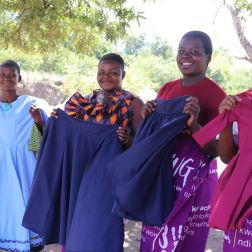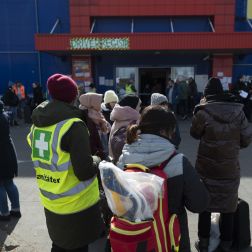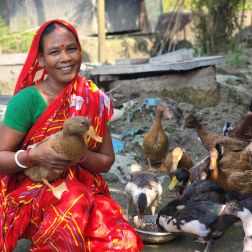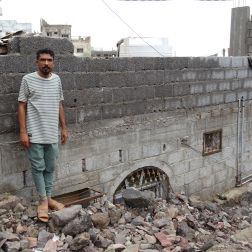- 3 mins read time
- Published: 6th March 2020
International Women’s Day: How Oxfam is helping to redress the political gender imbalance in Malawi
March 8th is International Women's Day – and at Oxfam, we believe that gender equality means more than giving women and girls the same opportunities to learn and earn as men. It also means ensuring that more women are in leadership roles and encouraging more women to become politicians.
In 2018, we launched the 50:50 Elect Her campaign in Malawi to increase the number of women going into politics. We profiled female MPs in the media to inspire more women to get involved in political life and we visited their constituencies to bring our campaign messages to their communities.
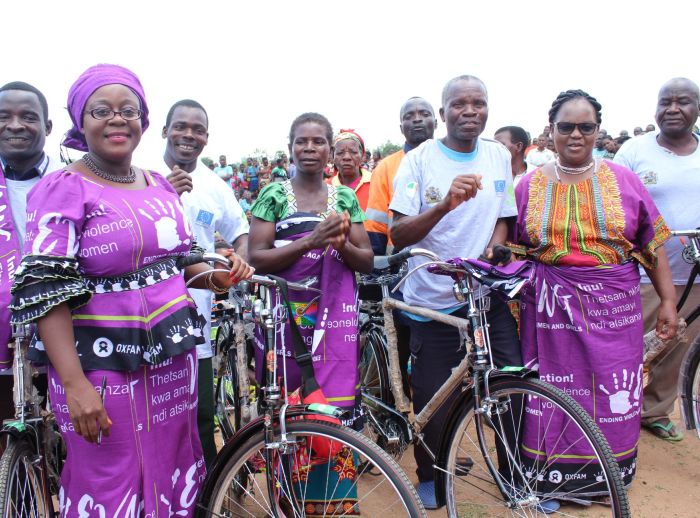
We provided volunteers with information on gender laws, kitted them out with bags and clothes branded with our messaging, and gave them bicycles so they could spread the word. All of this led to the first-ever Malawi Women’s Manifesto, media campaigns that reached one million people and community awareness campaigns involving 20,000 participants.
More women stood for positions than ever before, with 310 women contesting Malawi’s 2019 election, up from 261 in 2014. More than three-quarters of constituencies had a female candidate for parliament.
The visibility provided by the Elect Her campaign improved women’s chances of being elected and delivered big gains – last year, 23 percent of MPs elected in Malawi were women, up from 16.5 percent in the 2014 election. Malawi’s parliament elected its first woman speaker, while 25 percent of ministerial portfolios are now in the hands of women – up from 20 percent.
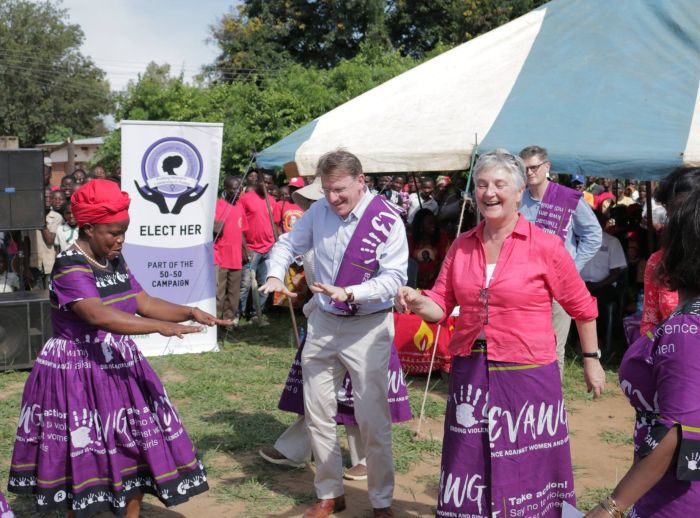
Meanwhile, in the local elections, 669 women stood as councillors in 2019, compared to 419 in 2014. Lilongwe, Malawi’s capital city, elected its first female mayor, and 67 women were elected out of a total 456 councillors. Out of 36 councils, six women were picked to be council chairs and 10 as vice chairs.
Such enormous institutional changes reflect real impact and progress towards achieving gender equality.
Nevertheless, there is still a long way to go.
While more women in politics is an important achievement, to fully succeed it must be accompanied by policies that deliver real behavioural change in those same institutions and in wider society.
But the successes of 50:50 Elect Her gives much cause for optimism that, with your support and those of our partners, we can beat poverty and injustice for good.
So, this International Women's Day let’s take a moment to celebrate the strides we have made together in the fight for equality.
Read our submission to the Citizens’ Assembly here
